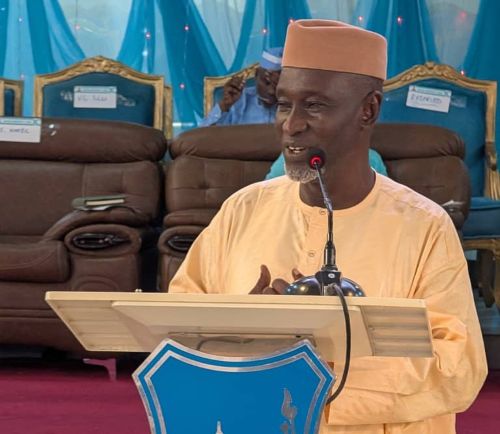The Executive Secretary of the National Commission for Mass Literacy, Adult and Non-Formal Education (NMEC), Prof. Musa Garba Maitafsir, has revealed that over 60 million adults in Nigeria lack basic literacy and numeracy skills.
He disclosed on Tuesday in Kano during the opening ceremony of the 2025 Nigeria National Council for Adult Education (NNCAE) Annual National Conference, held at the Convocation Arena of Bayero University, New Campus, Gwarzo Road. The five-day event, running from October 6 to 10, 2025, features the theme: “The Future of Adult Learning in Nigeria: Leveraging the 5th Industrial Revolution for Inclusive, Equitable, and Sustainable Development.”
Prof. Maitafsir described the figure as “not just a statistic but a call to action,” emphasizing that adult education should no longer be seen as an afterthought or remedial option but as “a strategic lifeline that empowers individuals.”
He noted that across the 774 local government areas — from rural communities and informal settlements to hard-to-reach locations — adult education offers a vital second chance for millions of Nigerians.
“Education opens doors to dignity, economic inclusion, and lifelong learning,” he said. “Yet, despite its profound importance, this sector still struggles for recognition, adequate funding, and full understanding.”
The NMEC boss stressed that the theme of the conference serves as a reminder for Nigerians to reflect on the future of adult learning amid rapid technological change and social transformation.
“We live in extraordinary times, marked by rapid technological change and complex social challenges,” he stated. “Yet, within these challenges lie opportunities to uplift millions of adults who have been overlooked by traditional education systems.”
Maitafsir highlighted the multiple challenges confronting Nigeria, including hunger, poverty, inequality, insecurity, and environmental concerns, stressing the need to reposition adult education within the context of the 5th Industrial Revolution and align it with the Sustainable Development Goals (SDGs), particularly Goal 4, which promotes inclusive and equitable quality education for all.
“Fundamental skills like reading, writing, and mathematics are keys to unlocking personal empowerment and active citizenship,” he added.
The NMEC Executive Secretary praised members of the NNCAE as “the backbone of adult education in Nigeria,” lauding their tireless advocacy and innovation in shaping the landscape of adult and non-formal education.
“Your unwavering efforts have brought hope where it once seemed impossible,” he said. “However, we all recognize there is still more work to be done. Supporting the vision and mission of the Commission demands continued collaboration, creativity, and commitment to reaching every Nigerian adult and youth in need.”
Prof. Maitafsir expressed appreciation for their steadfast partnership, urging continued dedication to the cause.
“Together, we can forge a future where no adult is left behind — where education truly becomes a lifelong journey accessible to all,” he said. “May this conference be a wellspring of fruitful ideas and renewed determination.”


